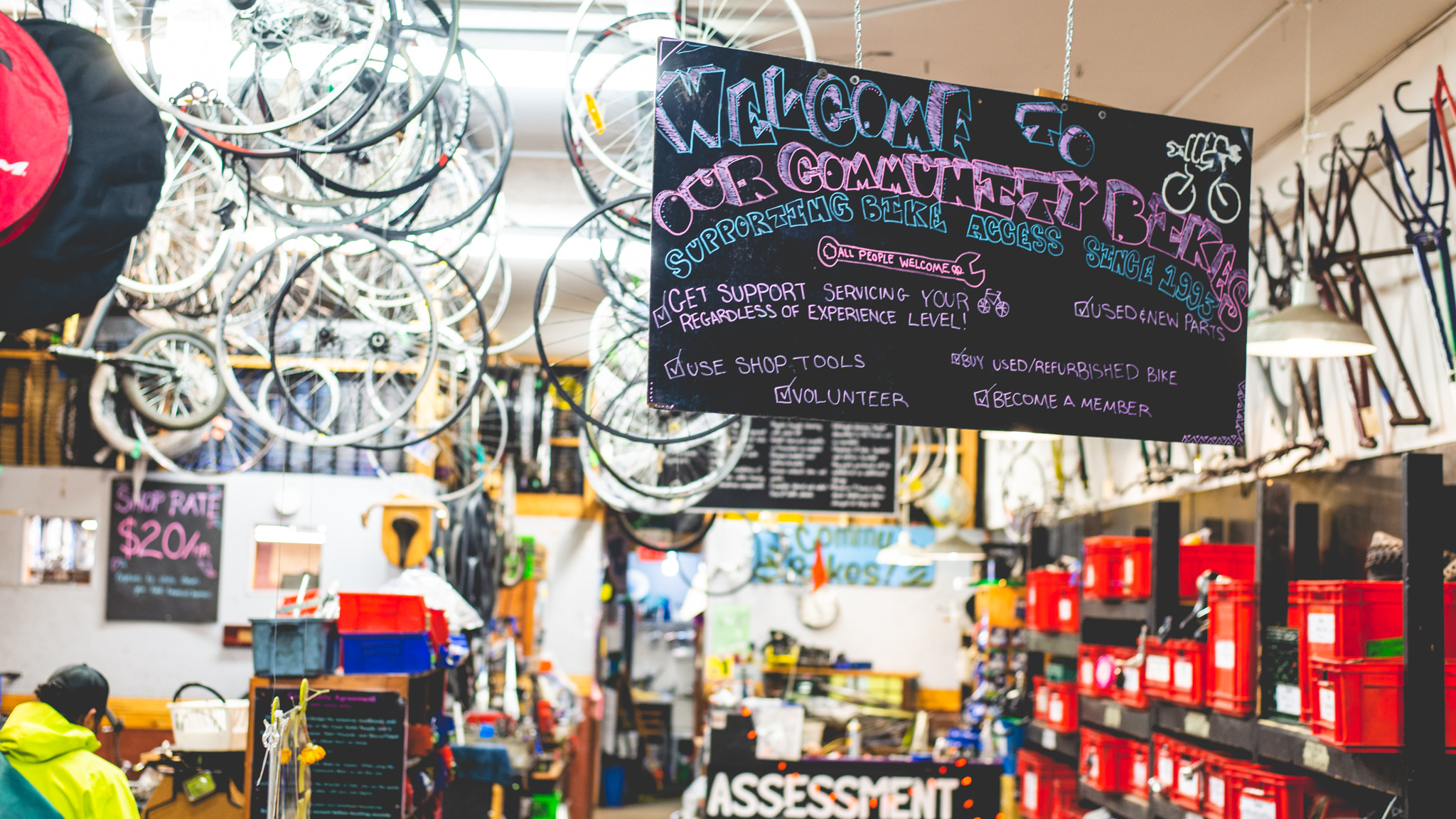
The drive for a greener world and more active lifestyles means that many organisations - local governments, sports bodies, and even cycling clubs - are keen to get more people cycling. However, affordability remains a persistent barrier. Purchasing, servicing, replacing; at the time of rising cost of living, for many, cycling is an unaffordable pursuit.
Cost is a barrier that can be alleviated by the humble community bike shop - typically not-for-profit organisations set up to offer low cost bicycles and servicing advice. However, with the cycling industry as a whole suffering from a post-pandemic downturn, many of these set-ups are struggling to keep their doors open.
What role do these community hubs play in cycling, and, how can we help them keep the lights on?
Why are community bike shops important?
According to the latest figures from UK charity Sustrans, only 40% of low-income households have access to a bike, 20% less than those in professional occupations.
This does not just have repercussions on sport and leisure, bikes are an indispensable means of transit, particularly for low income groups, who often have the lowest levels of car ownership.
As a result, local community bicycle shops and cooperatives all over the world are proving indispensable for combatting costs while breaking down other barriers to accessibility.
“Our goal is to keep people pedalling, regardless of income, providing for and empowering underserved communities,” says Sarah Thomas, Executive Director of Vancouver’s Our Community Bikes (OCB) which has been in operation in Canada since 1993, and now boasts almost 10 full-time mechanics and dozens of dedicated volunteers.
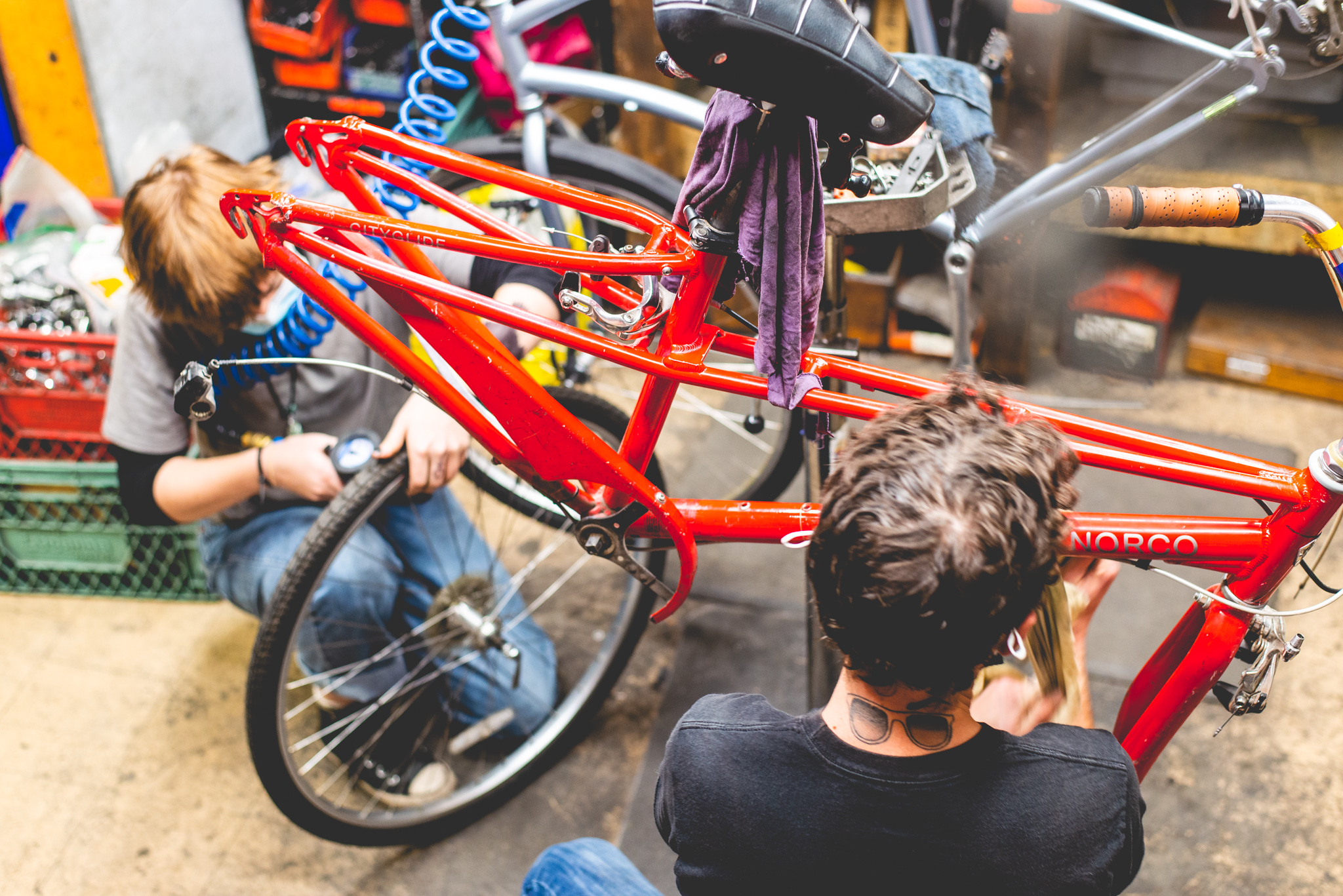
OCB is not alone. Often well-kept secrets (through no choice of their own), there are a network of community bike spaces across the UK and North America, offering mechanics workshops, low cost repair, as well as affordable quality bikes, parts and accessories.
Birmingham is home to The Bicycle Foundry, head up to Glasgow and you’ll find Bike for Good. On the other side of the pond in Oregon, Bikes for Humanity as well as the Bike Farm are serving Portland’s neighbourhoods.
These spaces come in many shapes and sizes, but all have a similar chaotic but welcoming atmosphere. Old bicycles hang from ceilings, rogue parts selling for pittance dangle from salvaged shelving, and individuals from all walks of life crouch over bike stands.
“All our services are designed to inspire, whether for paying customers or offered for free,” says Greg Kinsman-Chauvet, founder of Bikes for Good.
But it is more than that, they are social and political spaces too. Posters announcing pot-lucks, music events and affordable housing opportunities are pinned to walls, groups of friends perch on old sofas, and snacks (donated by local high-end eateries) are usually on hand.
From British Columbia to Buckinghamshire, Portland (USA) to Portland (UK), these once relatively unknown spaces are fast becoming linchpins in local community pedal power.
First you gotta buy a bike…
In the UK alone, around 2 million people are eager to cycle but deterred by the cost of bicycles and accessories, found a damning report from Sustrans earlier this year, which saw two-fifths of respondents identifying cost as the primary barrier to cycling.
“The cost of living crisis has reduced disposable income; at the same time, parts and labour are more expensive, and thus hard for people to afford to keep their bikes in safe conditions,” says Ben Hudson from Birmingham’s Bicycle Foundry (UK).
As a result, community bike shops play a pivotal role in making cycling more affordable.
“While we have seen improvement in public transport, cycling is the only means of transport for many in our poorest neighbourhoods,” adds Mark Harrison of Director, Cycle Project UK, which provides refurbished bikes and mechanical support in Wigan and the surrounding area.
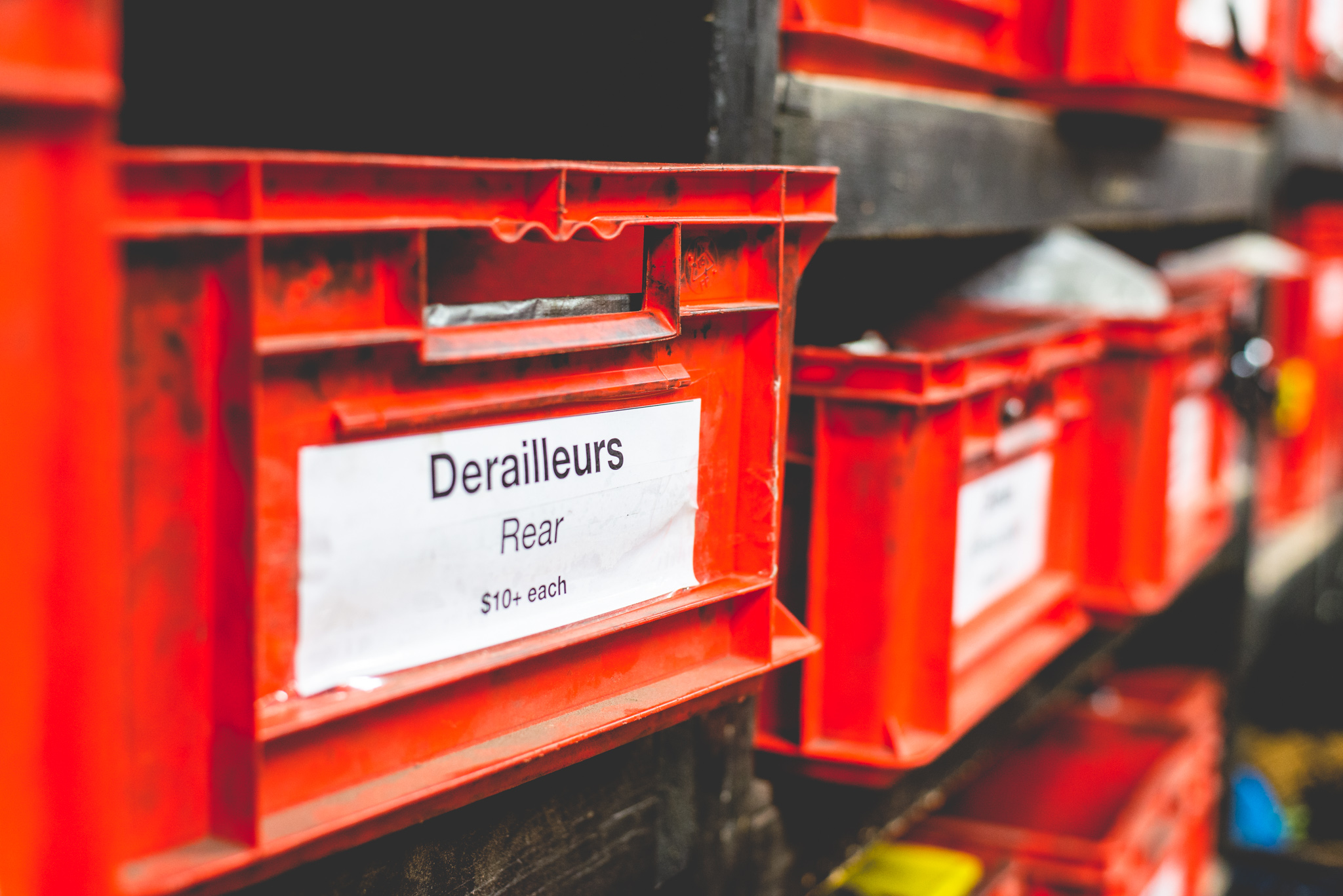
The situation is the same in Oregon (US), where rising housing costs are increasing the distances some of the poorest communities need to travel to access services.
“We've seen a greater urgency for resources in Portland as many communities have been priced out of the central city in the last few decades,” says Bikes for Humanity’s Andrew Shaw-Kitch.
“We see our role as providing a space to build community around bikes, where someone who has a couple hundred dollars and might otherwise go to WalMart for something affordable, can instead find a reliable bike and a community that wants to support their cycling goals,” he continues.
In addition to selling low-cost (yet dependable) bicycles, gear and accessories, Bikes for Humanity and many others are also coordinating donation programmes, which provide a lifeline for many.
OCB’s ‘Pedals for the People’, where bicycles are refurbished and donated to the local community is one such programme. This year alone, over 156 individuals facing financial hardship have received a free bicycle.
"We continually work with homeless shelters, social workers, youth projects and others to provide this service,” says Thomas.
Cycle Project UK is preparing to go one step further. Next year it will open the Tyneside bike packing centre, a library of bikes, panniers and campaign equipment, aiming to enable low income communities to test out touring- a pursuit which often comes with high upfront costs.
Welcoming workshops for all
Obtaining the bike is just the first step to becoming a regular rider. Community bike shops are also equipping cyclists with the skills, competencies and confidence - and space - needed to keep them on the road. OCB, Cycling Project UK, Bikes for Humanity and their peers are offer low cost and/or free workshops, helping people to learn the basic, yet critical, skills needed to maintain their own bikes, radically reducing regular maintenance expenses.
Many stores hold regular open hours for visitors to use the shop floor and equipment. I recently visited one such session at the Bike Church in Santa Cruz (California), its courtyard full of locals, all expertly de-and re-constructing their cycles, music playing and tools being tossed between patrons.
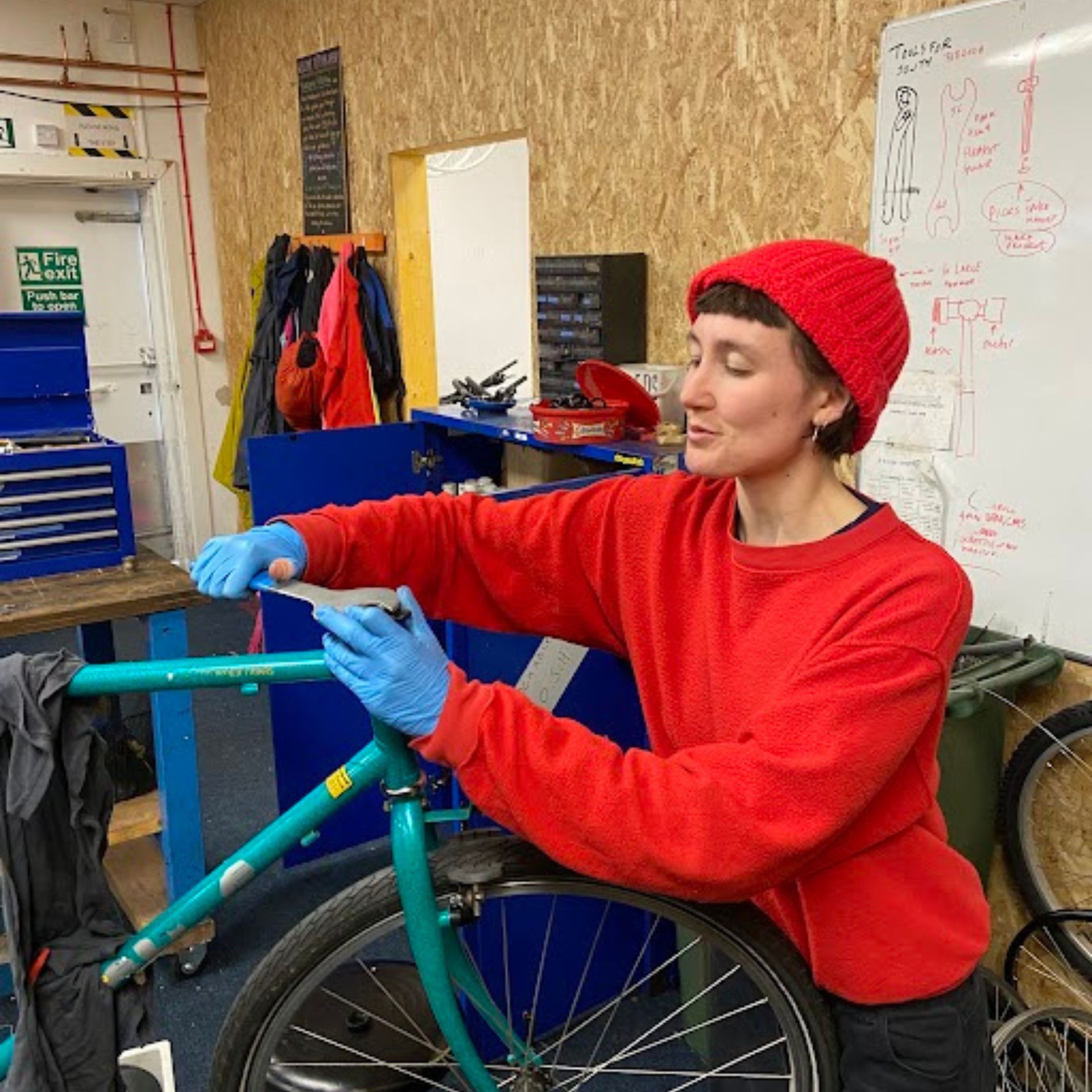
While admittedly many mainstream bike stores are experimenting with ad-hoc workshops and events, community bike shops are developing and delivering them in a way which engages with inclusivity and diversity in a far more rigorous way, striving to expand cycling to groups far less represented amongst urban ridership.
Repeated evidence demonstrates that discriminatory cultures found in a variety of bike shops - be they consciously created or otherwise - are deterring many riders, particularly women and ethnic minority groups from visiting mainstream cycling venues.
Community workshops provide dedicated events for individual communities. For example, OCB’s Access Nights endeavour to attract new folks to cycling. These include Women/Trans/Queer nights, as well as Deaf/HoH [Hard of Hearing] nights, the latter of which provides a deaf mechanic, interpreter and hearing teacher for participants to learn more about repair.
“Our goal is to advance transportation equity, ensuring people have access to bicycles regardless of race, gender, age or orientation,” says Thomas.
For the people and the planet: reducing, reusing, recycling
It is a tough time of year for community bike shops. Fewer cyclists on the roads, reduced volume of community projects, financial constraints amongst industry partners, cuts in local active transport budgets, are all eating into revenue streams.
Now is a more critical time than ever to pitch in your support, and there are so many ways to do so.
Some are organising local fundraising campaigns, seeking to secure financial support from the surrounding community and local businesses. Why not buy a donation for a cycling enthusiast this holiday?
Establishing partnerships is also instrumental; so if you are involved in a business which could benefit from working with a community bike shop- why not reach out to them?
Many could also do with additional support expanding their fundraising capacities, so if you have expertise in this field, why not lend a hand?
Of course, donations of bikes are always welcome, however check ahead to confirm they have the capacity for yet more bikes!
Cycling has long been recognised as critical for achieving transport related emissions reduction goals. In fact, replacing one car trip per day with a bike is estimated to halve personal CO2 emissions. Nonetheless, confronting the cycling sector’s own environmental impact is a growing concern, particularly amidst the proliferation of e-bike sales.
It is estimated that almost 48,000 bikes are sold each day around the globe, with 15 million discarded each year. In the USA alone each year, 10 million inner tubes end up in landfill.
By encouraging reuse and repairs of materials and products (which are often simply discarded), community bike shops are curtailing landfill waste, while simultaneously shifting popular understanding of products’ lifespan.
“We're helping to move away from a system of extraction, mass producing unreliable parts, transporting them across the planet, selling them, and then selling them again when they break shortly after,” asserts Shaw-Kitch.
For example at OCB, customers can purchase not just bikes, but an array of used parts, from pannier racks to saddles to mudguards (or fenders for our North American readers). On any given day the shop is bustling with locals pouring through baskets of second-hand components and accessories which line the walls.
“We were able to save 72 tonnes of CO2 in 2023 with potential further reduction of 1163 tonnes. This is the equivalent of 5.5 million kilometres of driving saved each year!” Says Thomas.
Keeping the planet green - but staying out of the red
However, like cooperatives and non-profits in all sectors, balancing the books is a continued challenge for community bike shops.
“These are tough economic times, we feel it and our patrons feel it, our free clinics were over 80% busier this year,” says Thomas.
“Our costs are going up but we have to make this work with the fact that customers can't afford to pay more,” adds Hudson.
For some financial difficulty is proving an existential threat. London Bike Kitchen and Portland’s Community Cycling Centre are facing closure, with others curtailing services and programmes.
Accessing grants, which are frequently snapped up by larger entities, is an uphill battle, and many do not provide the long-term financial security required anyway.
”Our primary challenge lies in the fact that our funding is currently allocated on an annual basis rather than through longer-term (2-5 year) commitments,” asserts Kingsman-Chauvet.
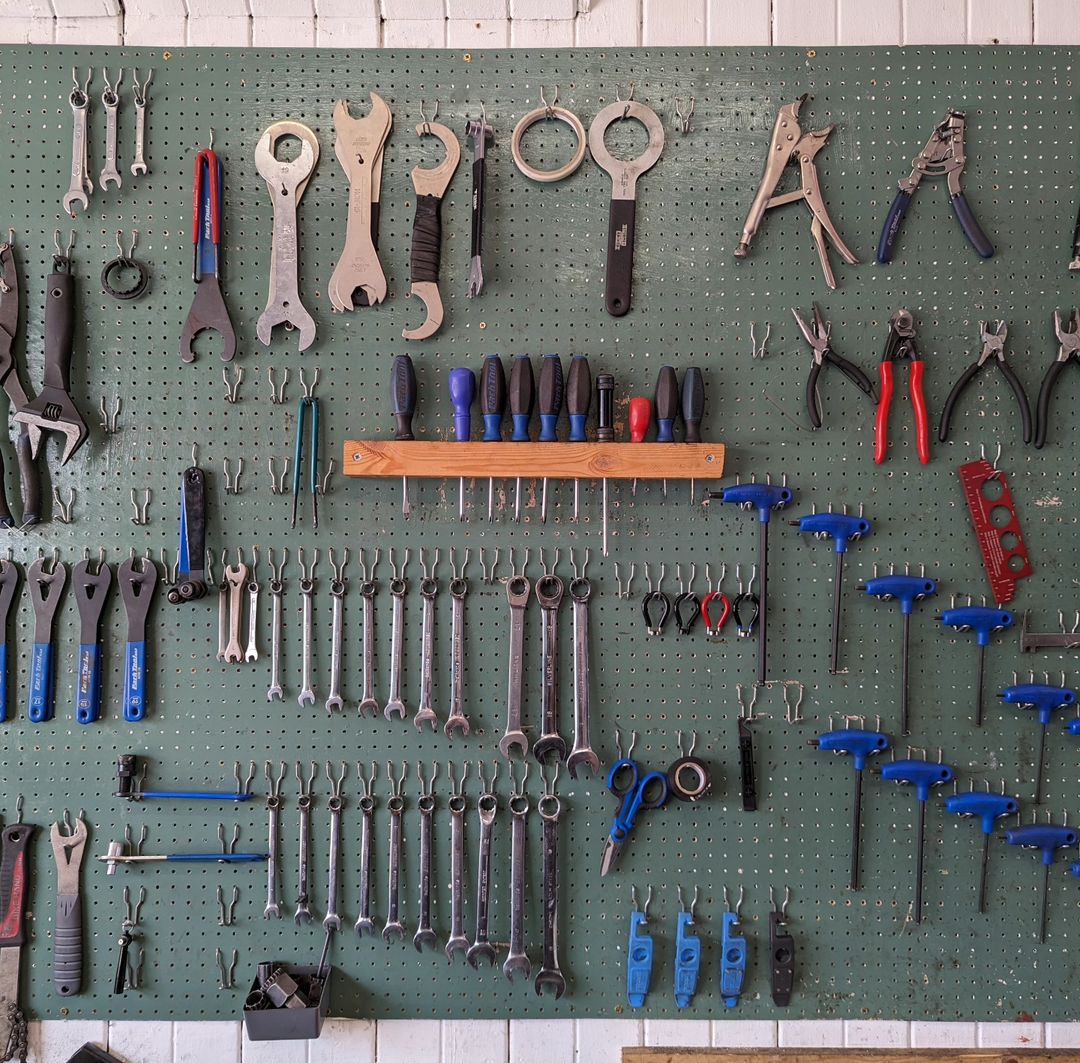
Part of the solution could lie in triangulating the work being conducted by community bike shops and local ‘help to cycle’ schemes, which receive public sector financial support in many major cities.
“We know when the local council is running programmes to teach young people how to ride, because they come to us beforehand to get a bike to actually be able to participate,” notes Harrison.
As a result, developing comprehensive projects which coordinate cycling education, affordable products and mechanical skills may prove a canny move for local authorities seeking to get more people on the saddle, effectively utilising the resources and skills offered by community bike shops.
In the meantime, most, if not all, rely on donations and strategic partnerships to maintain and enhance the services and programmes on offer. Funding drives such as OCB’s ‘Keep ‘Em Rolling’ campaign attract vital support from local and regional donors.
“It is through community support that we are able to offer free bike repair clinics and continue to deliver all our programmes,” Thomas reflects.
Community support is key
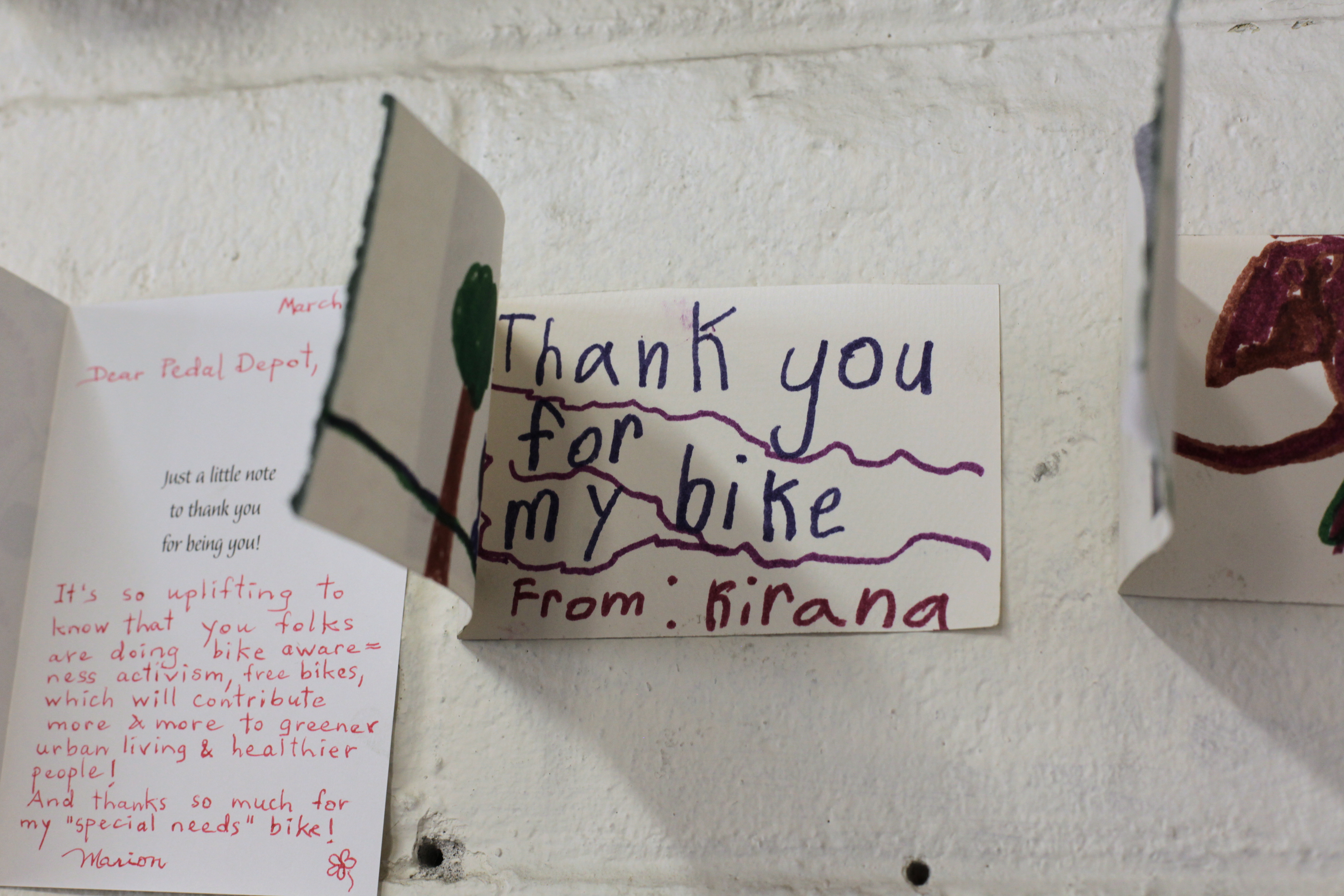
Cities around the world are doubling down on transport decarbonisation targets, targets they will not meet without growth in cycling.
Yet, as rising rents and public transport cuts make urban life increasingly unaffordable, for many, cycling is an expensive dive into the unknown.
As a result, these community and cooperative bike shops are becoming ever more critical, providing frontline services and advocacy.
Local communities are rallying round to ensure their success. However, they cannot rely on good will alone, financial and political support from the public and private sectors is also critical for supporting these institutions and their customers to keep pedalling.
“It should be a no-brainer, " says Shaw-Kitch.
“By investing in community bike shops you are investing in local neighbourhoods, supporting mutual aid, and building solidarity networks around sharing knowledge, not to mention reusing and recycling.”







